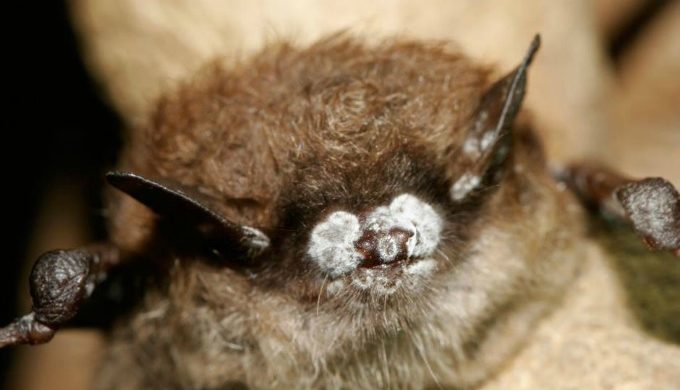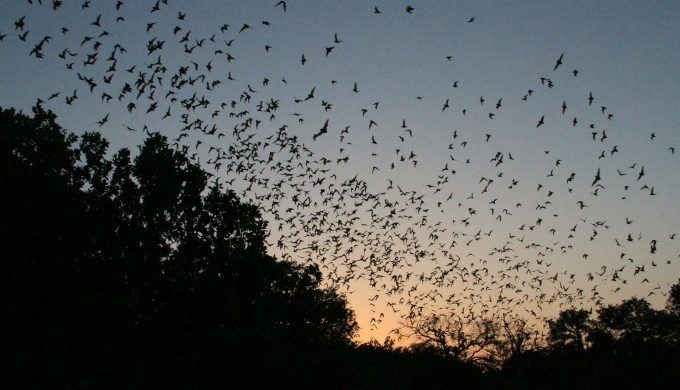To continue the war on White-nose Syndrome (WNS), Bat Conservation International (BCI) and its partners have been awarded the first year of a two year-grant by the U.S. Fish and Wildlife Service to work with four major federal agencies to develop tools to aid management response to WNS across the country. Being able to share information about geographic patterns, colony size, hibernation behavior, and habitat associations across different research and management organizations will aid the WNS response community in identifying which bat species in North America are most at risk, so they can target those populations as conservation priorities for the most immediate action.
Nature
Bat Experts Hope Grant Will Help Win War Against White-Nose Syndrome
White-Nose Syndrom Has Devastated Bat Population

Photo: Facebook/Canadian Wildlife Federation
According to Bat Conservation International, White-Nose Syndrome has killed millions of bats in North America since it was first discovered in a single cave in New York in 2007. Today, WNS is found in 31 U.S. states spanning the country from New York to Texas to Washington state, as well as five Canadian provinces.
The fungus that causes the disease is continuing to spread westward at an alarming rate and affects hibernating bats. The fungus grows over their noses and wing membranes, waking them up during the winter months when there isn’t enough food to provide the energy they need to be active, causing them to starve to death.
Texas Is Home to 32 Species of Bats

Photo: Facebook/BatCon
Texas happens to be the battiest state in the country. It is home to 32 of the 47 species of bats found in the United States. Not only does it hold the distinction of having the most kinds of bats, it also boasts the largest known bat colony in the world, Bracken Cave Preserve, near San Antonio, and the largest urban bat colony, Congress Avenue Bridge, in Austin. Visitors from around the world flock to Texas to enjoy public bat-viewing at several locations throughout the state.



